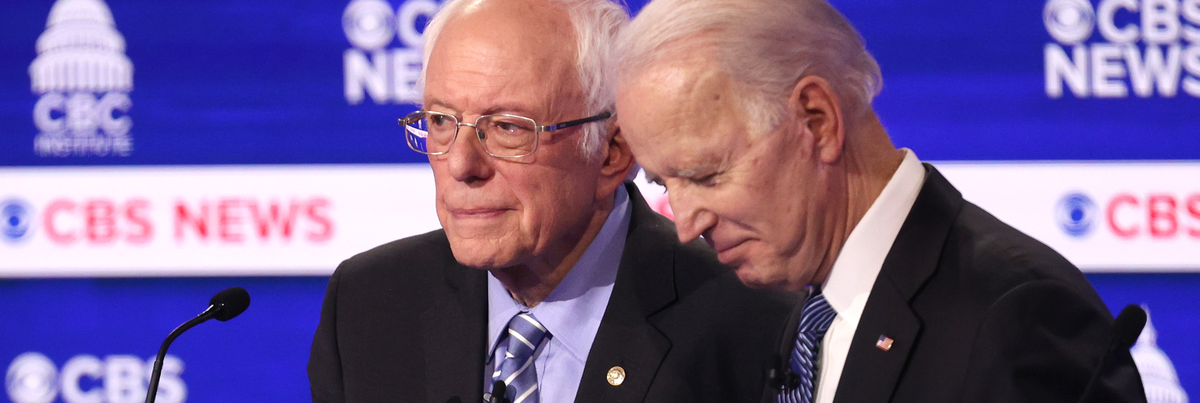In June, former Vice President Joe Biden formally clinched the 2020 Democratic presidential nomination over his closest opponent, Vermont Senator Bernie Sanders.
Sanders officially endorsed Biden for president
and since then, the two Democrats have formed a task force and released a report outlining policy recommendations and guidelines for Biden’s administration, should he win in November.
Nearly three months out from the presidential election, Biden holds support from Sanders' base, especially among those who would have preferred the Democratic nominee to be Sanders (i.e., Sanders supporters). In a trial heat among registered voters, Sanders supporters firmly say they would vote for Joe Biden (89%) over Donald Trump (3%) if the election for president were held now.
Biden currently has a 9-point edge over Trump
among all registered voters (49% vs. 40%, respectively).
But Sanders’ base proves complicated in its support for Biden, according to Economist/YouGov polling. Data from the latest survey shows a decline in the share of Sanders supporters who choose to vote for Biden
mainly because ofBiden while the number of Sanders supporters who choose to vote for Biden but say they are mainly voting
againstTrump remains firm. When Biden won the Democratic nomination in June, 21 percent of Sanders supporters said they were mostly voting for Biden rather than against Trump. August polling on the same topic reveals that just 14 percent of Sanders supporters now say that, and 83 percent are mostly voting against Trump.
Sanders supporters also tend to be less enthusiastic than registered voters overall about voting this year and that difference is particularly stark when comparing their enthusiasm to vote this election versus the one in 2016.
YouGov polling throughout the last month and half shows that nearly seven in 10 registered voters say they are extremely or very enthusiastic to vote in the presidential election this year (67%). Sanders supporters are significantly less likely to say they are enthusiastic to vote this year (55%).
In the latest Economist/YouGov polling, Sanders supporters (35%) are nearly twice as likely as registered voters (18%) to say they are less zealous to vote this year when compared with the previous election in 2016. Two in five Sanders supporters (40%) say they are more enthusiastic about the election this year than in 2016 but that figure is 12 points short of the share of registered voters who say they are also more enthusiastic this year (52%).
Regardless of whether Trump or Biden wins the election this year, Sanders supporters appear to take issue with both candidates’ ages. When asked if Biden’s (who turns 78 in November) and Trump’s (who recently turned 74 in June) age helps or detracts from the work the presidency requires, more than two in five Sanders supporters (45%, a plurality) say their age makes it too difficult to fulfill the duties of a president (vs. 33% of Sanders supporters who say their age helps with the president’s job).
That’s contrary to what most registered voters say. A plurality of voters (45%) say Biden’s and Trump’s age helps candidates to have the experience and wisdom to do a good job as president and just about a quarter of voters (23%) say their age makes it difficult. Notably, Bernie Sanders is older than both candidates in question and turns 79 this September.
Methodology
:
The Economist/YouGov survey was conducted by YouGov using a nationally representative sample of 1,500 U.S. adult citizens interviewed online between August 2 - 4, 2020. This sample was weighted according to gender, age, race, and education based on the American Community Survey, conducted by the US Bureau of the Census, as well as 2016 Presidential vote, registration status, geographic region, and news interest. Respondents were selected from YouGov’s opt-in panel to be representative of all US citizens. The margin of error is approximately 3.3% for the overall sample.Image: Getty









